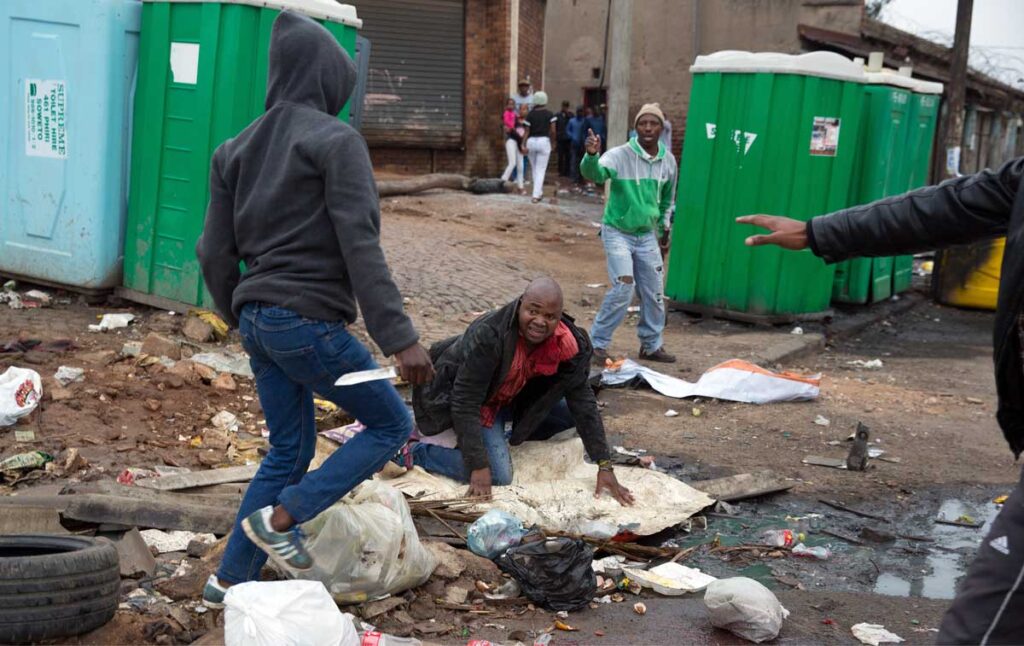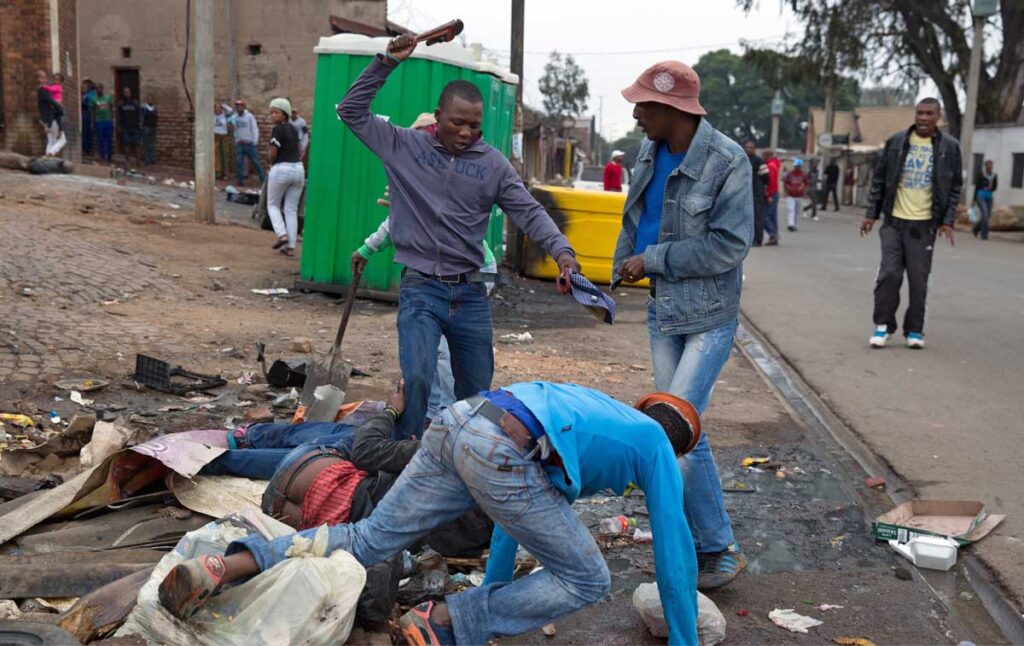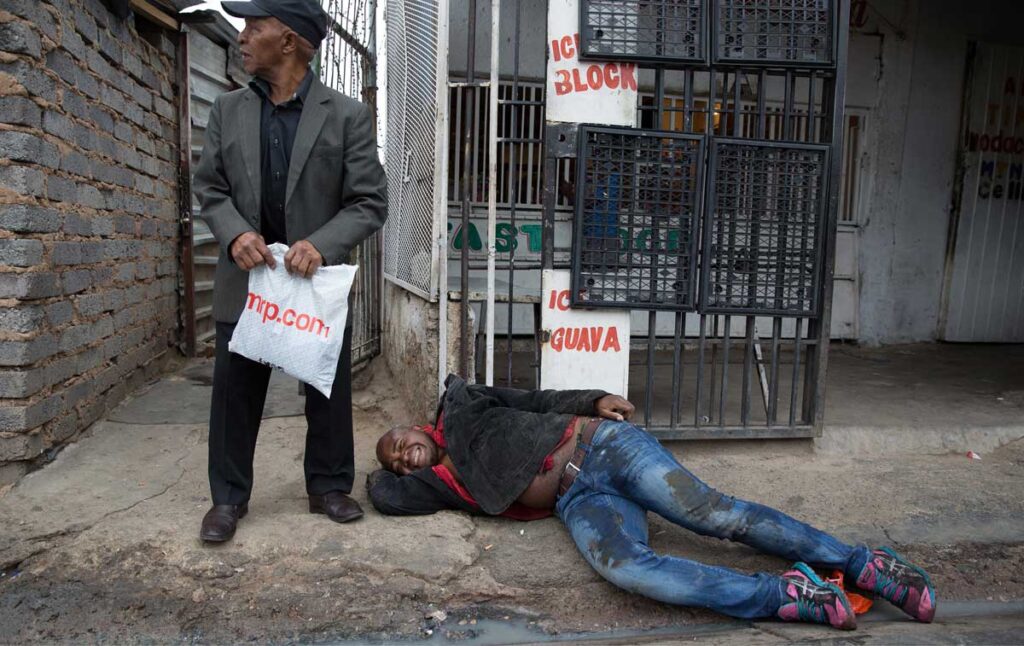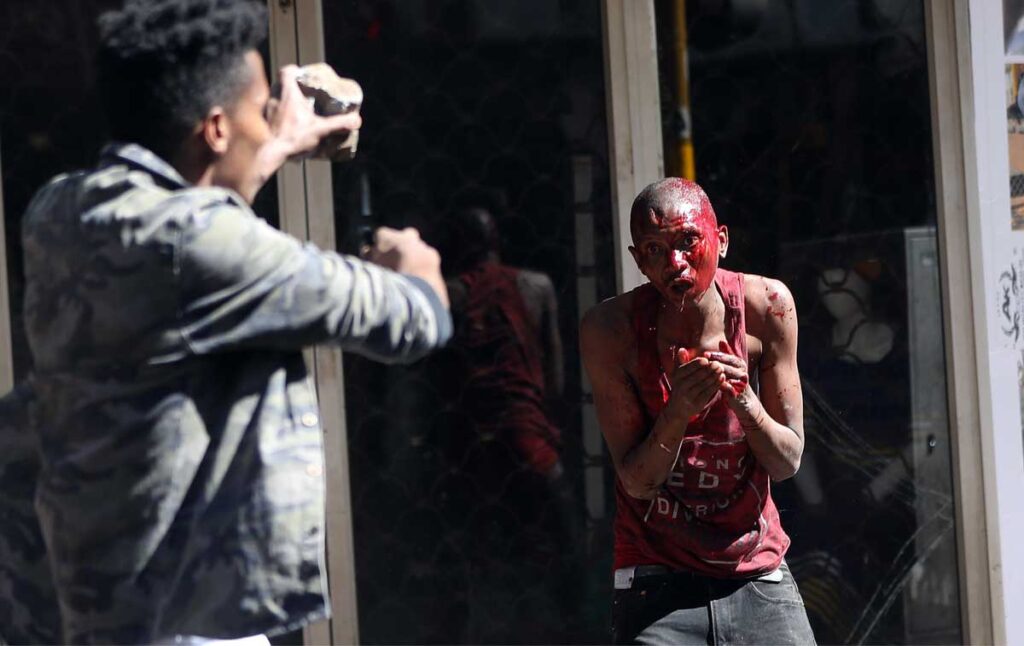What is disinformation, and what are its consequences for society? Social scientist Philip Howard says disinformation is “purposefully crafted and strategically placed information that deceives someone, tricks them into believing a lie or taking action that serves someone else’s political interests.” The distribution of misleading information shapes and affects people’s perspectives, allowing a narrative to be built and used to advance specific goals.
These objectives, however, frequently foster and cause acts of violence in Africa; political, religious, and social conflicts are often triggered by information exchanged on numerous online platforms.
Increased accessibility to social media has empowered individuals to stay informed about current affairs and fostered information exchange. Social media platforms have also streamlined access, enabling users to engage with a wide array of content through likes, comments, and shares, potentially inciting intense emotions regarding relevant socioeconomic issues.
In a 2017 paper, researchers Hermann Wasserman and Nicholas Benquista highlighted that online media fuels the proliferation of rumours, falsehoods, and misinformation, posing a threat to the credibility of conventional news outlets. The rise of disinformation has also created a more urgent concern linked to three key factors. Social media platforms have created new avenues for circulating verified and unverified information, diverging from traditional information production through newspapers, television, and radio broadcasts.

The second factor is associated with the psychological impact of information on individuals; the employment of emotionally charged language not only serves to inspire but also to endorse extremist actions, heightening the risk of conflicts. Using specific phrases and terms can establish a harmful cycle of prejudice, suppression, and stereotypes. Lastly, disinformation can be disseminated by anyone seeking to advance, manipulate, or distort a narrative for their personal benefit.
Violence in Africa is often perceived as irrational and lacking a discernible rationale for its perpetuation. This assumption, however, is untrue, and a correlation exists between violence and disinformation cycles online. By examining several cases in this article, it is crucial to observe how information disseminated across various platforms has contributed to and even exacerbated violence.
Over the past decade, Russia’s influence in both West and Central Africa has grown dramatically, expanding its footprint throughout the continent. Russia is known to be involved in 39 operations in both West and Central Africa, according to a Africa Center for Strategic Studies report this year. Disinformation is spreading across Africa as Russia’s influence expands. Numerous incidents of Russian disinformation campaigns used to further geopolitical objectives have been reported. These have thrived because they play into long-standing resentment and anti-western and anti-democratic feelings.
Influenced by Russian disinformation strategies, West and Central Africa have both experienced cycles of violence by state and non-state actors. There is growing discontent with foreign forces in the Sahel that has resulted in attacks against UN peacekeepers, thanks in part to the use of social media platforms like Facebook, where pro-Russian support was used as instances against an anti-western narrative in West Africa. In Mali, public support for the 2021 coup was increased by forces that promoted narratives calling for the overthrow of the democratic government.

In southern Africa, research suggests that authoritarian regimes are working with Russia to propagate disinformation campaigns, which are strategically designed to exacerbate societal divisions and are particularly targeted at opposing political parties within the nation. Samuel Ramani’s 2023 publication, Russia in Africa: Resurgent Great Power or Bellicose Pretender, reveals how Russia’s influence in countries like Madagascar, Kenya, Mozambique, and Zimbabwe is evident in its active participation in manipulating the electoral process as part of a campaign to prop up and normalise authoritarian regimes.
Reviewing Ramani’s work for the website Democracy in Africa, researcher Joseph Siegle noted that: “Moscow realised it could deflect any reputational costs for propping up repressive regimes by spinning its actions as advancing multipolarity in a world dominated by the West, supporting African solutions for African problems, and resisting neo-colonialism. In addition to bolstering Russia’s posture as a Great Power, the strategy provided an immediate entry point into Africa that would have taken Moscow years to cultivate through conventional means such as trade, foreign direct investment, development assistance, or cultural and educational exchanges.”
Siegle also noted that Africa had become an essential element of Russia’s geostrategic posture as it attempted to evade its own international isolation and sanctions following the invasion of Ukraine in 2022.
The rise of “Twitter courts” and online public spaces has also greatly shifted the discourse of current affairs, allowing people to share and express anti-immigrant sentiments – in South Africa, for example – directly exposing migrants to harmful attacks that shift from slurs and derogative speech to physical attacks.

South Africa has seen a rise in xenophobia against undocumented foreign nationals who are perceived to be usurping employment and other economic opportunities from unemployed citizens. These narratives gain traction through popular social networking sites like Facebook and X, which serve as platforms facilitating public displays of discontent through likes, comments, and shares, fostering conflict within these online arenas. This shifts to a physical space where a narrative emphasises the necessity to protect one’s territory against such attacks by any means necessary. The extract included in the next paragraph below is an example of the narratives on X that construct stories about foreigners receiving services like healthcare and education at the expense of South African taxpayers:
“Sibongile, a 20-year-old illegal foreigner from Mozambique, who came to South Africa when she was with her illegal foreign mother, asking for help to get documented. She was given free education for 20 years by South Africans while South African kids have been refused their right to education, she is now stuck she cannot make ends meet as she is undocumented, and all her family is in South Africa illegally. Tax money goes to waste while the EFF leader and Julius Malema wants to open borders for all African criminals to enjoy South African taxpayers’ money while killing them”.
This is just one of numerous posts that have circulated which have heightened tensions between disgruntled South Africans and foreigners. The other effect has been instances of retaliatory action towards South Africans and their establishments in other African countries. One example was an incident in Nigeria where MTN, a South African telecommunications company, was targeted and damaged in response to xenophobic attacks on Nigerians.
The impact of disinformation clearly has negative implications for a country’s democratic processes. The capacity and ease with which online platforms can and are exploited to construct and shape narratives highlight the danger they pose when used to spread disinformation. This significantly influences how African states should address political and social obstacles. That includes enhancing fact-checking systems that ensure that information that is disseminated is accurate, thus allowing greater access to information to large percentages of the population while promoting peaceful and democratic processes.
Enhanced strategies and mechanisms aimed at limiting the spread of inaccurate information among local communities could involve governmental implementation of policies that clearly stipulate the definition of misinformation, and necessary measures to educate individuals on recognising false news.
Additionally, it is imperative for social media platforms to be held accountable for allowing the circulation of untrue information by establishing and enforcing guidelines, in cooperation with government bodies and stakeholders to uphold freedom of expression, while ensuring reliable information dissemination. These policies will be the first step in ensuring greater monitoring of social media platforms while still promoting the democratic values of freedom of expression and the right to access information.



